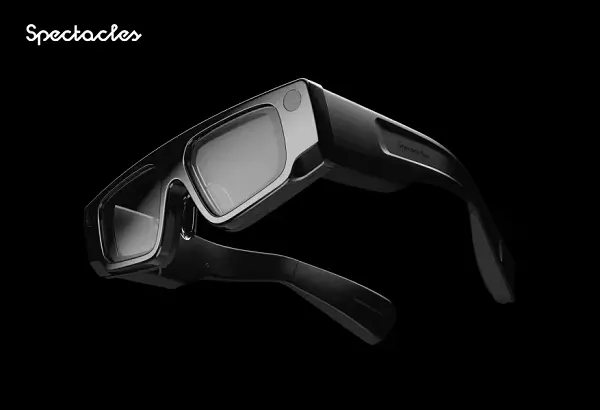Snapchat is stepping up its game in the augmented reality (AR) space with the upcoming release of a fully AR-enabled version of its Spectacles. The new device, named “Specs,” is expected to hit the market in early 2026, giving Snap a head start against Meta’s AR glasses, which won’t debut until 2027.
For years, Snapchat has invested heavily in AR technology, and now it’s aiming to be the first major player to release consumer-ready AR eyewear. This next-gen device will be a refined and more fashionable version of its current AR Spectacles, which have been in testing with developers over the past year.
What to Expect from the New Snapchat Specs
While Snap has yet to reveal official images or pricing details, it has shared some promising updates. The new Specs will be significantly slimmer and sleeker than the current bulky prototype. According to Snap CEO Evan Spiegel, the glasses will support full pass-through vision, allowing digital content to overlay seamlessly onto your real-world environment.
Spiegel emphasized the device’s independence, stating:
“No puck, no tether, no phone required.”
This statement suggests a major leap in usability and portability. The Specs will include built-in AI functionality and advanced sensors, offering a variety of interactive features.
Snapchat explained:
“Snap’s all-new Specs are uniquely positioned to understand the world through advanced machine learning, bring AI assistance into three-dimensional space, enable shared games and experiences with friends, and provide a flexible and powerful workstation for browsing, streaming, and more.”
Why This Launch Matters
Snapchat has long been a pioneer in augmented reality, even branding itself as a “camera company” when it first introduced the original Spectacles in 2016. At that time, Snap envisioned a future where AR would be integrated into everyday life through wearable technology.
However, the journey hasn’t been smooth. Early Spectacles faced production setbacks, high costs, and limited user interest. Combined with slower-than-expected growth in Snap’s advertising business, the AR push lost momentum.
Now, things appear to be changing. With its core business stabilizing and AR usage skyrocketing—Snapchat users engage with AR features more than 8 billion times per day—Snap sees a clear opportunity to lead the next wave of computing.
Can Snap Outrun Meta and Apple?
Despite Snap’s lead in AR innovation, it faces fierce competition from tech giants Meta and Apple. Meta, in particular, is taking a more methodical approach. After the success of its Ray-Ban Meta smart glasses, Meta is focused on perfecting its AR glasses before launching in 2027. These devices are expected to offer more advanced capabilities than Snap’s Specs.
That raises the question: Will users choose Snap’s earlier but potentially less powerful product, or wait for Meta’s more advanced option?
Snap is betting on first-mover advantage. In a market where timing can be everything, getting in early could pay off big. For example, OpenAI’s ChatGPT gained dominance not by being the most powerful AI, but by being the first to reach a mass audience. Snap hopes to replicate that success with its Specs.
A Word from Snap’s CEO
In a recent statement, Evan Spiegel said:
“We believe the time is right for a revolution in computing that naturally integrates our digital experiences with the physical world. We couldn’t be more excited about the extraordinary progress in artificial intelligence and augmented reality that is enabling new, human-centered computing experiences. We believe Specs are the most advanced personal computer in the world, and we can’t wait for you to see for yourself.”
Final Thoughts
Snapchat’s early lead could be a strategic win. With no direct competition until at least 2027, Specs may capture a significant portion of the early AR market. If successful, Snap could redefine how users interact with technology—blending the digital and physical worlds in real time.
Only time will tell whether Snap can maintain its lead once Meta and Apple enter the space. But for now, the AR race is officially on.




